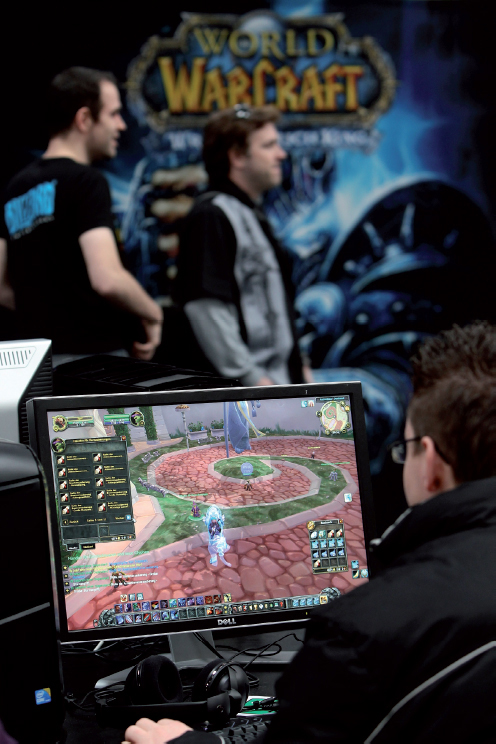Communities of Play: Inside the Game
Printed Page 306
Virtual communities often crop up around online video games and fantasy sports leagues. Indeed, players may get to know one another through games without ever meeting in person. They can interact in two basic types of groups. PUGs (short for "Pick-Up Groups") are temporary teams usually assembled by matchmaking programs integrated into the game. The members of a PUG may range from elite players to noobs (clueless beginners) and may be geographically and generationally diverse. PUGs are notorious for harboring ninjas and trolls-two universally despised player types (not to be confused with ninja or troll avatars). Ninjas are players who snatch loot out of turn and then leave the group; trolls are players who delight in intentionally spoiling the gaming experience for others.

Because of the frustration of dealing with noobs, ninjas, and trolls, most experienced players join organized groups called guilds or clans. These groups can be small and easygoing or large and demanding. Guild members can usually avoid PUGs and team up with guildmates to complete difficult challenges requiring coordinated group activity. As the terms ninja, troll, and noob suggest, online communication is often encoded in gamespeak, a language filled with jargon, abbreviations, and acronyms relevant to gameplay. The typical codes of text messaging (OMG, LOL, ROFL, and so forth) form the bedrock of this language system.
Players communicate in two forms of in-game chat-voice and text. Xbox LIVE, for example, uses three types of voice chat that allow players to socialize and strategize, in groups or one-on-one. Other in-game chat systems, like World of Warcraft's, are text based, with chat channels for trading in-game goods or coordinating missions within a guild. These methods of communicating with fellow players who may or may not know one another outside the game create a sense of community around the game's story. Some players have formed lasting friendships or romantic relationships through game playing. Avid gamers have even held in-game ceremonies, like weddings or funerals-sometimes for game-only characters, sometimes for real-life events.